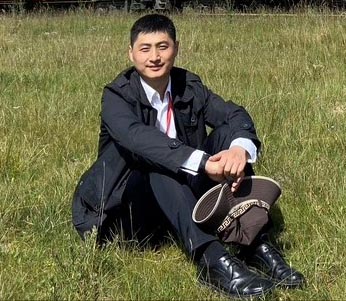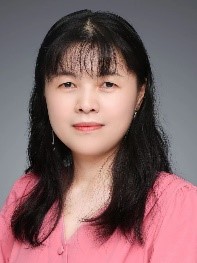Keynote Speakers
Associate Professor Yunlai Zhou
Department of Engineering Mechanics, Xi’an Jiaotong University, ChinaSpeech Title: Large structural dynamic analysis: from structural optimization to condition assessment
Abstract: The aim of this talk is to investigate the large structural dynamic behaviors from structural optimization to condition assessment. In terms of large-scale structures like high-rising Canton tower, Yingwuzhou long-span bridge and high-speed railway system, the introduction of model updating gives an alternative in certain condition assessment. The key idea is to find effective factors like natural frequencies, mode shapes and so on relying on the structural behaviors, which will serve as the basis for iterative updating in further structural optimization and condition assessment. The model updating has been evolved with new algorithms like genetic algorithm (GA), particle swarm optimization(PSO) and so on. These algorithms make the applicability of model updating in large scale structures like long span bridges. In engineering application, the model updating technique can highly improve the design efficiency with optimal solution, as well as to the condition assessment with limited sensors. Some real engineering applications will be introduced to show the applicability of model updating based techniques.
Biography: Yunlai Zhou Jointed the Xi’an Jiaotong University in 2020 as an associate professor of engineering mechanics. Since 2010 Yunlai Zhou has focused his attention mainly on problems related to the nondestructive testing, dynamic and fatigue assessment of engineering structures from both testing and analytical aspects. In particular, by studying and working in Europe (Technical University of Madrid, Lisbon University, Lusofona University, Ghent University), in Singapore (National University of Singapore), and in Hongkong SAR (Hongkong Polytechnic University), he has developed several methods suitable for structural optimization and condition assessment including static, dynamic and fatigue failures. Yunlai Zhou has conducted both theoretical and experimental studies in nondestructive testing techniques like phased array ultrasonic testing (PAUT), electromagnetic acoustic transducer (EMAT). He has an outstanding expertise in nondestructive testing system design, data analysis for structural optimization and condition assessment.
The work done in the above research areas has led to more than 100 scientific papers 2012-2022 (of which more than 60 articles in international peer-reviewed scientific journals) as well as to 3 books devoted to the structural dynamic analysis from structural optimization to health monitoring (Magd Abdel Wahab, Yunlai Zhou, Nuno MM Maia (2018). Structural Health Monitoring from Sensing to Processing. IntechOpen Press. ISBN: 978-1-78923-788-7, Print ISBN: 978-1-78923-787-0. Yunlai Zhou, Magd Abdel Wahab (2019). Bridge optimization, inspection and condition monitoring. IntechOpen Press. ISBN: 978-953-51-8054-8. Yunlai Zhou, Magd Abdel Wahab, Nuno MM Maia, Linya Liu, Eloi Figueiredo (2019). Data Mining in Structural Dynamic Analysis. Springer Nature Singapore Pte Ltd. 2019. ISBN: 978-981-15-0500-3).
His scientific outputs have received much attention from the international scientific community, with obtaining more than 1100 citations and an h-index of 19 with more than 5.65k from Google Scholar. He is associate editor of two international journals, KSCE Journal of civil engineering, and Frontiers in Smart Materials, also he is a member of the Editorial Boards of more than 6 international journals including Shock and Vibration, Advances in Mechanical Engineering(SAGE) and so on.
Prof. Lihua Wang
School of Aerospace Engineering and Applied Mechanics, Tongji University, Shanghai, 200092, P.R. ChinaSpeech Title: Meshfree Stabilized Collocation Method (SCM): theory, algorithm and applications of solid, fluid and fluid-structure interaction problems
Abstract: Meshfree methods made big progress in the past decades which have been applied to many areas. Roughly, these methods can be divided into two categories: Galerkin-type meshfree methods based on weak form and collocation-type meshfree methods based on strong form. On one hand, direct collocation method (DCM) suffers low accuracy and instability compared with Galerkin-based meshfree methods. On the other hand, since most approximation functions in meshfree methods are rational functions, it’s quite hard to achieve high-accuracy integration with high efficiency in Galerkin-type meshfree methods. Therefore, to combine the advantages of Galerkin-type and collocation-type meshfree methods, we propose a new meshfree method - stabilized collocation method (SCM). The functions which can satisfy the high order consistency conditions such as reproducing kernel (RK) function and Lagrange interpolation function can be utilized as the approximation function. The presented method can satisfy the high order integration constraints which can conserves the high order consistency conditions in the integration form. This property leads to the high accuracy and optimal convergence for the proposed method. When RK approximation is introduced, gradient reproducing kernel (GRK) approximations can be utilized to promote the efficiency, especially for the problems governed by high order partial differential equations. When Lagrange interpolation function is introduced as the approximation function, since it has Kronecker delta property, the essential boundary conditions can be simply and exactly imposed like finite element method (FEM), which further improves the accuracy of this method. Numerical examples validate the high accuracy and convergence as well as good stability of the presented method, which can outperform DCM and Galerkin based meshfree method utilizing the same approximation function.
Based on the SCM, a Lagrangian-Eulerian stabilized collocation method (LESCM) is further proposed for the fluid-structure interaction problems involving free surface flow, in which the structure is modelled by a rigid body. This method is an evolution of the material point method and particle-in-cell methods which are based on the hybrid Lagrangian-Eulerian description. The problem domain of the fluid and structures is discretized into the Lagrangian particles which carry the information, and the problem domain covering the entire movement space is discretized into the uniformly distributed Eulerian background nodes. The coupling governing equations of the fluid, structures and interfaces are solved by the meshfree SCM employing the RK approximation on the Eulerian nodes. The solution is very efficient since the Eulerian nodes are set to be the initial positions in each time step and it's no need to reconstruct the shape function. The information mappings between the Lagrangian particles and the Eulerian nodes are also conducted by the RK approximation which can keep the mass and momentum conservation of the solution. The cell-cut algorithm is introduced to couple the fluid and the structures which can solve the fluid pressure and the fluid-structure interactional force simultaneously and avoid the complicated iterations of the traditional interaction algorithms. Several numerical examples including the collapse of water column with a rigid barrier, water entry of a half-buoyant circular cylinder and a rigid box rotating and sinking in water are simulated, which demonstrate the high accuracy, high efficiency and good stability of the proposed method. This method can be extensively applied to the engineering applications of fluid-rigid body interactions.
Biography: Dr. Lihua Wang is a professor at School of Aerospace Engineering and Applied Mechanics in Tongji University, Shanghai, China. She is currently a General Council Member of the International Association for Computational Mechanics (IACM) and the International Chinese Association for Computational Mechanics (ICACM). She is the recipient of several awards, including the APACM Award for Young Investigators in Computational Mechanics, the ICACM Young Investigator Award, and the Du Qing-Hua Medal & Young Researcher Award of Computational Methods in Engineering. She authored more than 60 journal publications, and has been invited to deliver more than 10 plenary and invited lectures at international conferences. She served as the Editorial Board Member of three journals and guest editor of two journals. Her research interests include development of meshfree methods and machine learning, fluid-structure interaction, inverse problems, functionally graded materials, and rigid-flexible coupling dynamics.


